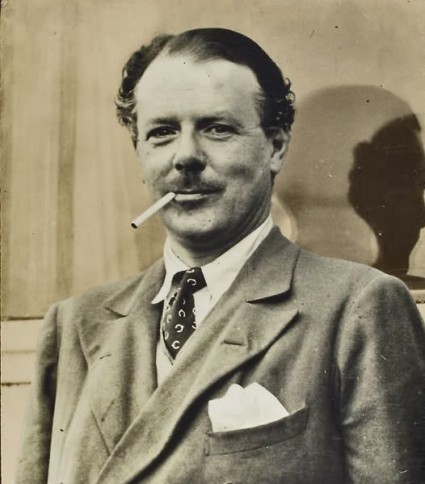
In 1929, politician and author Sir Harold Nicolson left his post of diplomacy, mid-career, so that he could be closer to his wife, Vita Sackville-West. The devoted pair had an open marriage, both engaging in same-sex relations (Sackville-West most famously with Virginia Woolf). In 1940, Nicolson was appointed a Junior Minister under Winston Churchill, and acted as an unofficial link between the government and de Gaull’s Free French until the war ended. Below, Nicolson writes to his wife of his inability to speak at a recent debate. On the same day, he wrote in his diary, “They say we have beaten them in the air and over and under the sea; that they have no hope at all; that collapse will come. I admit that were I a German I should be feeling pretty glum. But I distrust optimism in any case.” Rightfully so, the war would end a little over two years later. In 1945, Nicolson would lose his election to secure his spot again. Unable to acquire any significant respect in either writing or politics, Nicolson described how he was regarded “by the Bohemians as conventional, and by the conventional as Bohemian.”
14 July 1943
I went down to the House for the Colonial Debate and felt that I should say something about African education. But somehow I felt that I could not do it. I have never before suddenly lost confidence in myself to that extent. I do feel it strange that a person of my experience is so much ignored nowadays. I suppose that the fact that I got into the Government (and in a post where I ought to have made good) and was thereafter discarded has created the impression that I am a dud. What I mind is that it has damaged my self-confidence. I don’t want to drift into being an old buffer.
From Harold Nicolson Diaries & Letters 1930-1964. Edited by Stanley Olson. New York: Atheneum, 1980. pp. 248.
FURTHER READING
Read Harold Nicolson’s account as witness to the signing of the Treaty of Versailles.
View an image of Vita Sackville-West on her wedding day.
Read Adam Nicolson’s recollection of his childhood at Sissinghurst.


